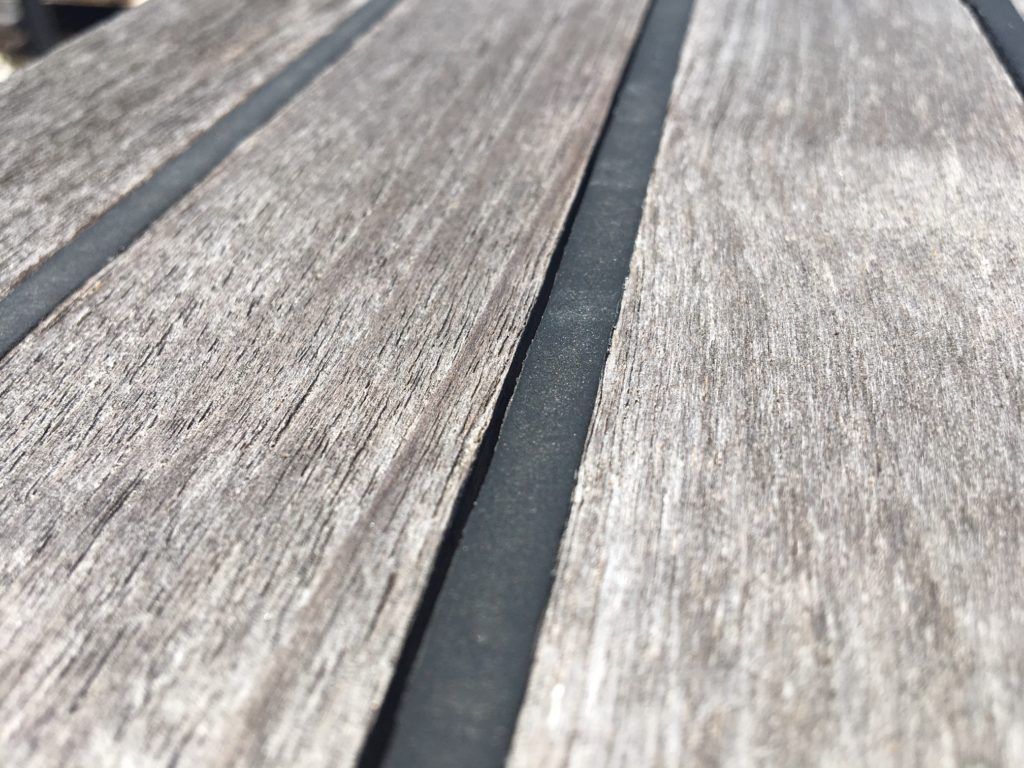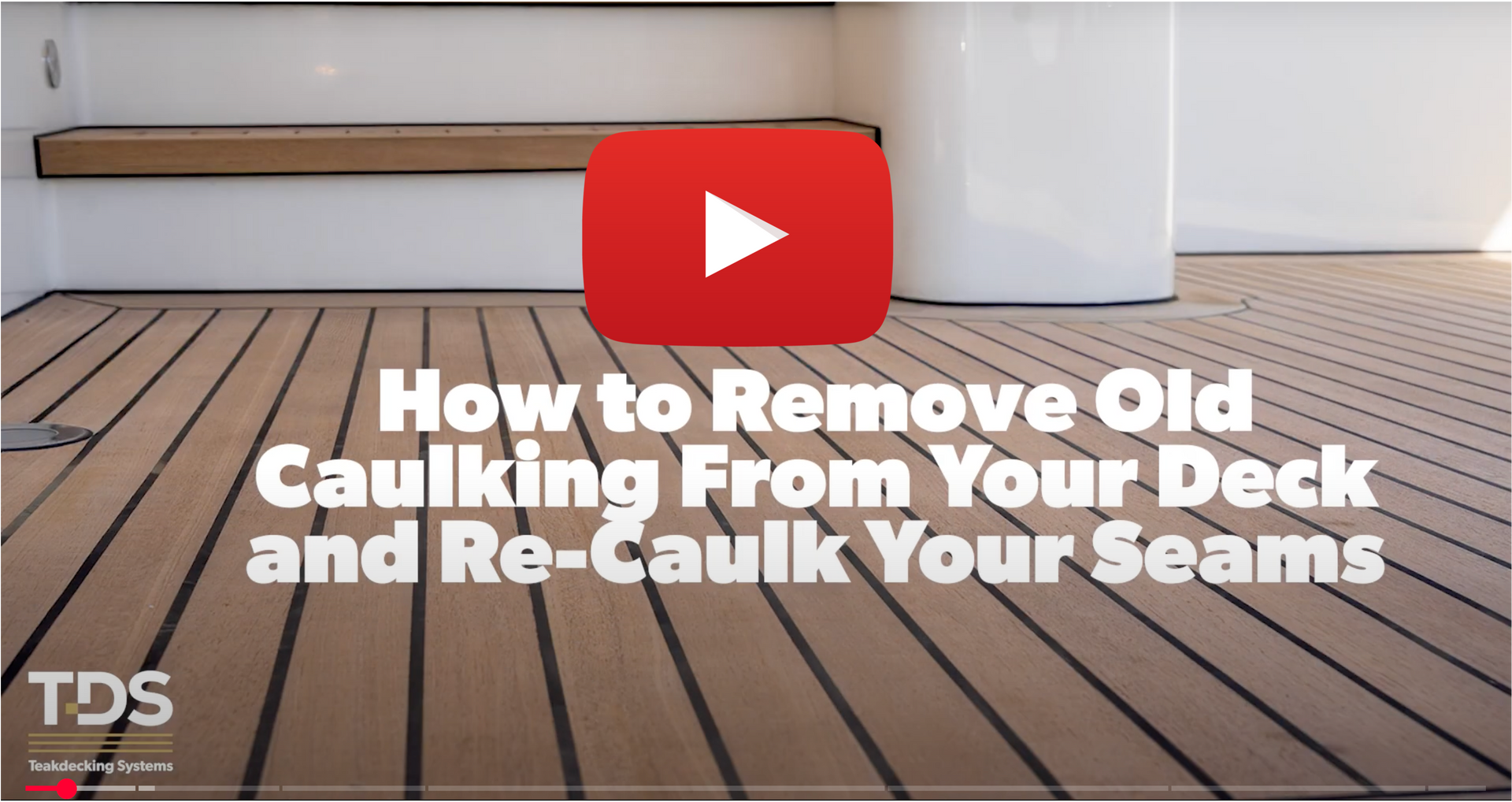How to Extend the Life of Teak Decking
Extend the life of teak decking and protect your investment with regular cleaning, maintenance, and repairs. The ultimate decking choice is teak because of its durability, anti-slip properties, rot resistance, and insulation, and, of course, its beauty. To maximize its value, clean it properly; lightly sand it once each year; and inspect for potential repairs. A properly maintained deck can last 5 to 15 years longer than one that is poorly maintained.
CLEAN FREQUENTLY … and CAREFULLY
FACT:
There are cleaning methods that will sustain a teak deck and ones that will destroy it.
Teak is best cleaned with a soft-bristled brush using fresh or saltwater, and a single-part cleaner, such as the proprietary ECO Cleaners from Teakdecking Systems. These products are MARPOL and Florida Clean Marina certified, to help prevent water pollution.
Proper Cleaning Methods
- Wash deck with a single-part cleaner (Teakdecking Systems ECO cleaners) and a soft-bristled brush or scrubbing pad like Scotch-Brite Maroon pad or equivalent, and rinse well. If a single-part cleaner is not available, use dishwashing liquids such as Dawn with a small amount of bleach. Boat soap is okay to use, too, but it has a low pH so it’s important to rinse well.
- ALWAYS scrub AGAINST the grain lightly with the soft-bristled brush or scrubbing pad.
- Wash often to keep residue from becoming ingrained in the wood.
- Clean spills immediately to prevent damage to the teak.
NOTE:
Rinsing often with salt water is recommended too. Many boat owners believe this is the best way to maintain and preserve teak, minimizing the use of cleaning agents.
IMPORTANT: Only use soft-bristled brushes or a scrubbing pad. A hard-bristled brush will wear away the softwood and shorten the life of the deck.
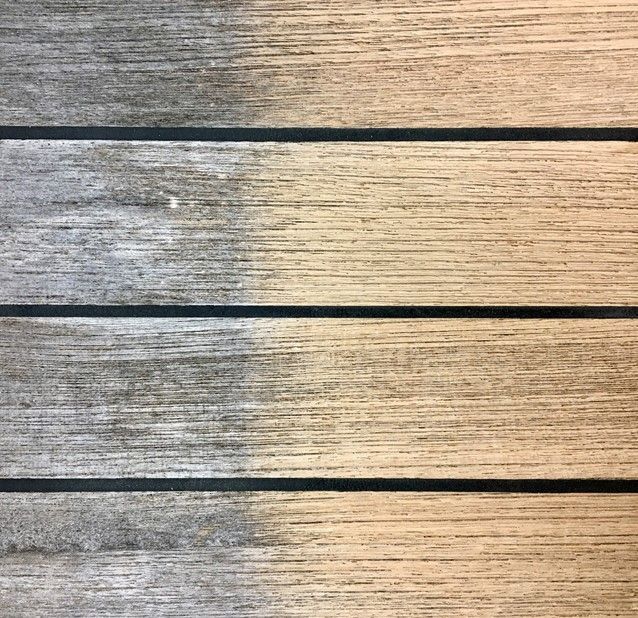
Before & After Cleaning with Teakdecking Systems ECO Cleaner
Improper Cleaning Methods
Teak is comprised of hard and soft wood. The growth rings of a teak tree form the dark hardwood, and the wood between these rings is the softwood. Therefore, when softwood is destroyed, deep ridges and uneven surfaces are created. Ridges trap debris, mold, and residues.
If a deck has proper care, a tight-grained marine deck constructed of vertical-grain teak will last longer because there is less softwood.
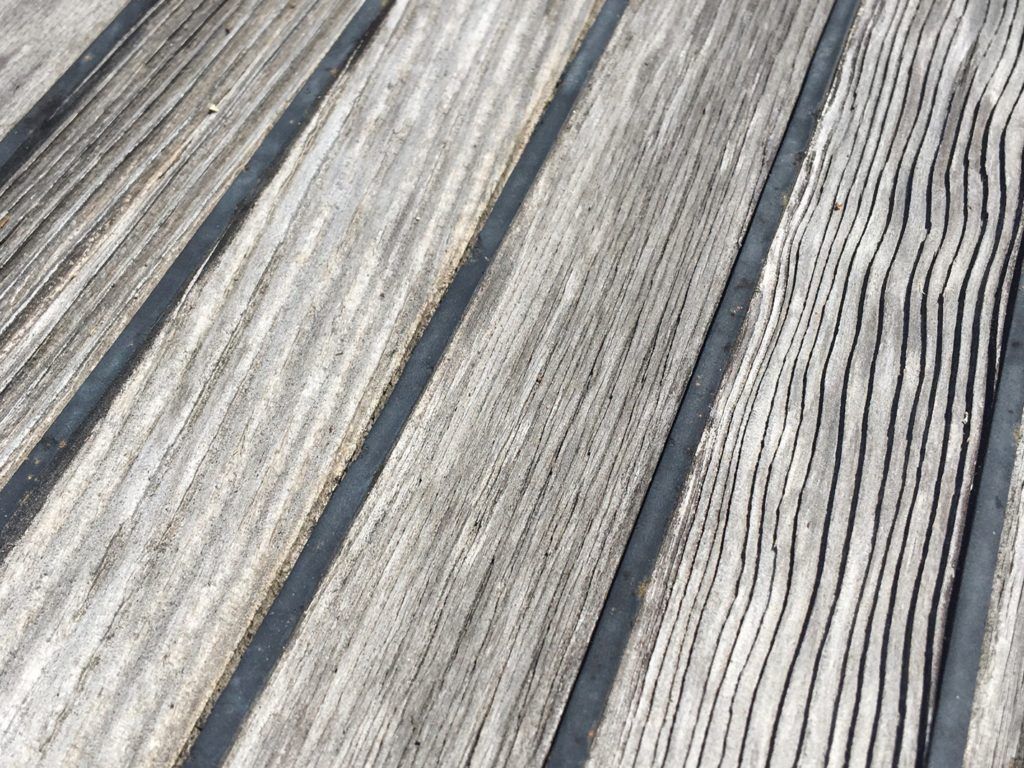
Ridges in teak collect dirt and mold as seen in this deck that is ready for replacement
The following products DESTROY the softwood and should never be used for cleaning:
- Power-washers
- Two-part cleaners (highly-acidic)
- Stiff-bristle brushes
CAUTION: Overly aggressive cleaning has the potential to damage the deck too. So, clean gently ONLY when needed.
PERFORM ANNUAL LIGHT SAND-OUT to EXTEND DECK LIFE
In addition to proper cleaning, perform an annual light sand-out (best performed by a highly experienced carpenter). A well-done sand-out will remove a thin layer of teak refreshing the surface and make it smooth. The teak’s natural oil is brought back to the surface. Further, the silver patina that naturally develops is removed with a light sand-out. This restores the teak to its original golden color should the owner prefer this look, but a grayed deck offers protection of the wood. Note, a gray deck may be cleaned and its color will not change.

Sailboat with a Fresh Sand-Out – Looks like a New Teak Deck
As stated previously, the softwood naturally wears away faster. So, sand-outs keep the surface smooth, minimizing residue build-up in rough surfaces where softwood is worn.
A proper sand-out removes a thin layer of teak (and caulking) evenly,. The skilled carpenter commonly starts with 60 grit and finishes with 80-100 grit, using a dustless sander such as a Festool branded product.
To ensure success, only hire very skilled technicians with quality equipment to perform this task. Seek out professionals who have strong references. (Ask local boatyards for recommendations.) A skilled technician reduces the risk of an uneven sand-out or potential gouges in the wood. Teak is an expensive investment and a bad sand-out will unnecessarily reduce its useful life. Uneven surfaces can create low areas where water can accumulate.
IMPORTANT: Cleaning regularly will minimize the need for sanding.
INSPECT AND REPAIR CAULKING
Inspect decks for loose caulking or gaps. Look for missing or detached caulking which could allow water penetration. If no failures are visible, wet the deck. As the deck dries, look for areas that may stay wet longer than the surrounding teak. This is where failures may exist.
Repair missing or detached caulking immediately to prevent damage.
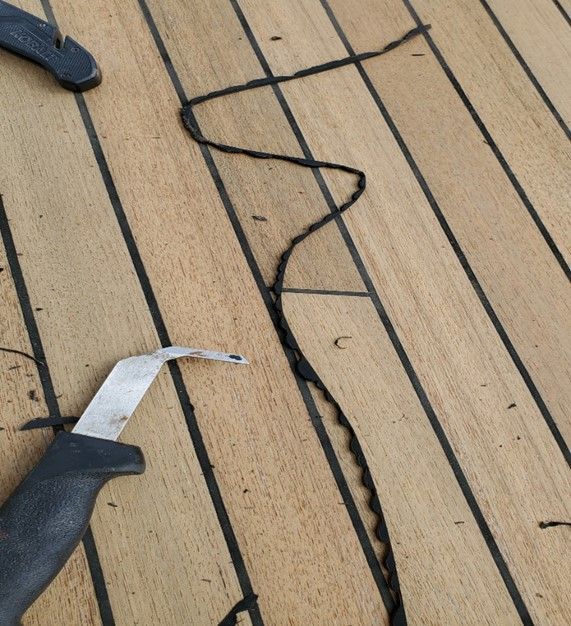
Caulking Repairs are Often Necessary
Remove and re-caulk cracked or hardened caulking. Caulking must be flexible to allow the deck to expand and contract.
TIPS TO EXTEND THE LIFE OF TEAK DECKING
- Store boats under cover when possible
- Bows and swim platforms often experience the most weather damage and require more maintenance, so protect these areas if possible
- Create and adhere to a regular cleaning and maintenance program
- Make repairs immediately
Enjoy the beauty and functionality of a teak deck, and contact us with questions about how to extend the life of teak decking or read these articles:
How to Assess Teak Decking Quality
How to Inspect Teak Deck Caulking and Seams
CONTACT US
941-756-0600 and press “1”
yacht.services@teakdecking.com
ALL PRODUCTS
